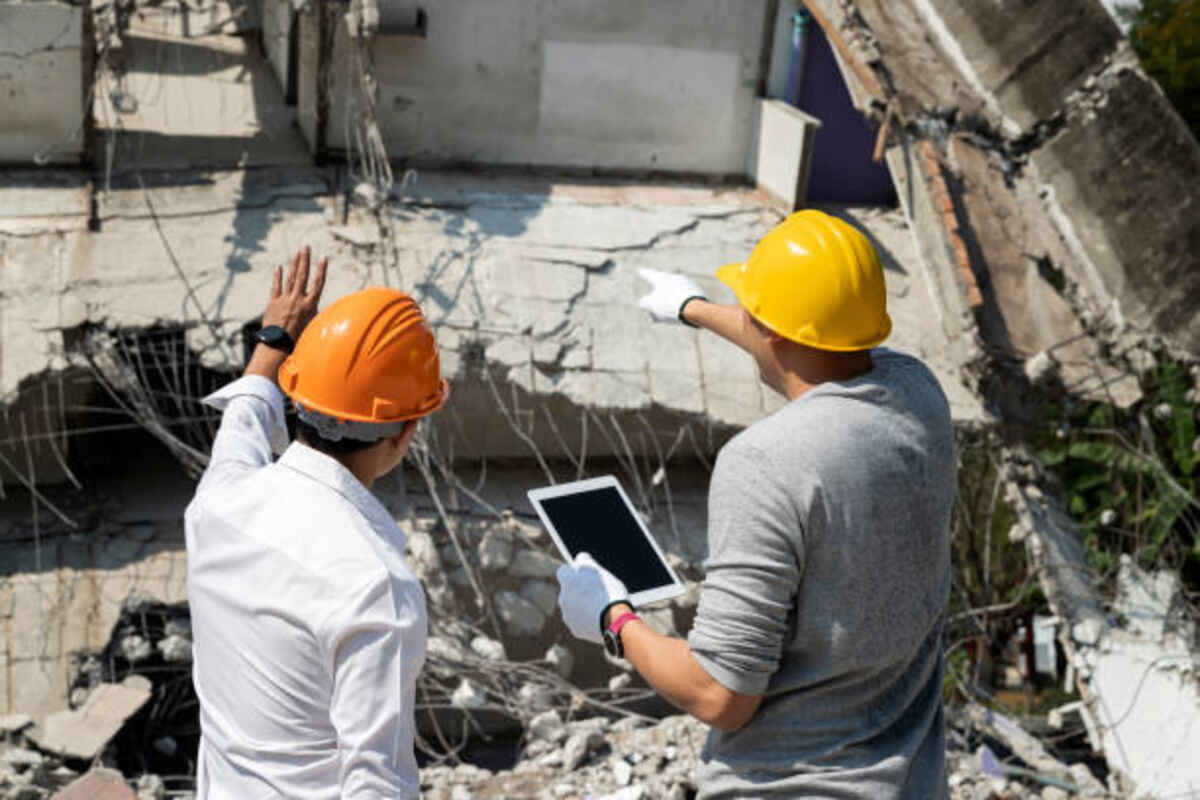Building demolitions can often be necessary to make way for new construction projects, but they may also benefit the community if their purpose is to lower property values or make living conditions unsafe.
Before deciding to demolish the property, it is essential to consider all relevant factors carefully.
Safety
Demolition is one of the most hazardous types of construction. This danger stems from unstable buildings being demolished that could collapse unexpectedly during their ongoing demolition operation or as a result of natural forces such as storms, fire, explosions, or wear and tear.
An engineering survey should be performed to assess the condition of the building to be demolished and all nearby structures, such as adjacent buildings, to identify and mitigate risks associated with its demolition. This process includes inspecting framing, floors, walls, and openings to ensure they are safe for employees working through them.
As with any job site, all workers must wear appropriate personal protective equipment when working. This may include gloves, safety goggles, and hard hats if required for your particular task. In addition, having a transparent communication system in place ensures all workers remain on the same page and can easily communicate.
All demolition sites should be secured with barricades and fences, and prominent warning signs should be posted around the property. Furthermore, a qualified person should inspect the site daily to identify new hazards and immediately address any problems found—to prevent accidents.
Permits
No matter whether you are demolishing and rebuilding an old home, demolishing commercial property for expansion, or changing its use entirely – demolition permits are mandatory to comply with local building regulations and must be obtained prior to any work beginning. Usually, only licensed contractors qualify to secure such permits.
Permits may require various details and forms of documentation, including:
Legal descriptions and property maps. A site plan showing the boundaries of the property. A grading plan outlining limits for clearing and grading, erosion and sediment control measures, cellar and basement locations with details regarding them, and an estimated timeframe for completion of demolition and cleanup work that may be extended in certain instances.
Other requirements may include evaluating the soils by a certified soil inspector and checking for underground utility lines such as water, sewer, electric, and gas services. Furthermore, your city may impose sewer cap guidelines that must be observed during the demolition of your house.
As part of your permit application, it is also essential that you meet tree code requirements. Most cities won’t issue one until necessary steps have been taken to safeguard against tree loss in the area.
Marketing
An effective marketing plan is essential for any demolition business. A sound strategy will enable you to reach new clients, increase visibility, and establish trust within your target market. Furthermore, successful campaigns allow companies to develop brand identities and voices that distinguish themselves from competitors; this translates directly into branding materials like website designs and messaging with clients.
An effective business plan serves as the cornerstone for your demolition company’s future success. It should include a vision and mission statement that define your organization’s overall purpose and values; these should also outline your target market and explain how you plan to compete within it. Furthermore, startup cost estimation and creating a sustainable financial model are paramount in guaranteeing the viability of any enterprise.
Many property owners employ demolition services as part of their preparations for construction projects. Demolition services may be necessary to make way for new buildings or remove outdated structures that no longer serve their intended purpose.
Finding an experienced demolition contractor is essential to ensuring your project runs safely. Before hiring someone, be sure to verify their credentials and obtain references. Furthermore, check permit requirements at your city or county for details regarding permits, and ensure gas, water, and electrical services are disconnected prior to beginning any demolition work.
Communication
Communication between neighbors, homeowners, and construction contractors during demolition is essential to its successful execution. Not only will this prevent miscommunications between all involved, but it can also expedite the process by proactively addressing unexpected problems as they arise. Informing neighbors of your work will keep them abreast of disruptions to their services as well as any possible potential damages to property or loss of services caused by disruptions caused by you – keeping their minds open to changes can help ensure any potential issues do not arise.
Communication with employees on-site is also paramount for enhancing safety and efficiency. For example, the reminder toolbox talks about safety measures. Regular inspections of machinery may also assist in avoiding incidents.
Before embarking on any demolition process, it’s essential to comply with local regulations and secure permits from relevant bodies to meet environmental and safety standards and prevent future legal issues.
As with any contractor selection process, selecting an experienced and reputable demolition contractor should also be of top importance. Make sure to seek referrals from friends and family as well as online reviews before choosing a candidate. Whenever possible, obtain multiple written estimates before making your selection decision. Selecting the appropriate demolition contractor will ultimately guarantee the success of your project – make sure that potential contractors understand your vision for rebuilding so they can provide accurate quotes based on it – this can keep costs down while helping build your dream home sooner!

